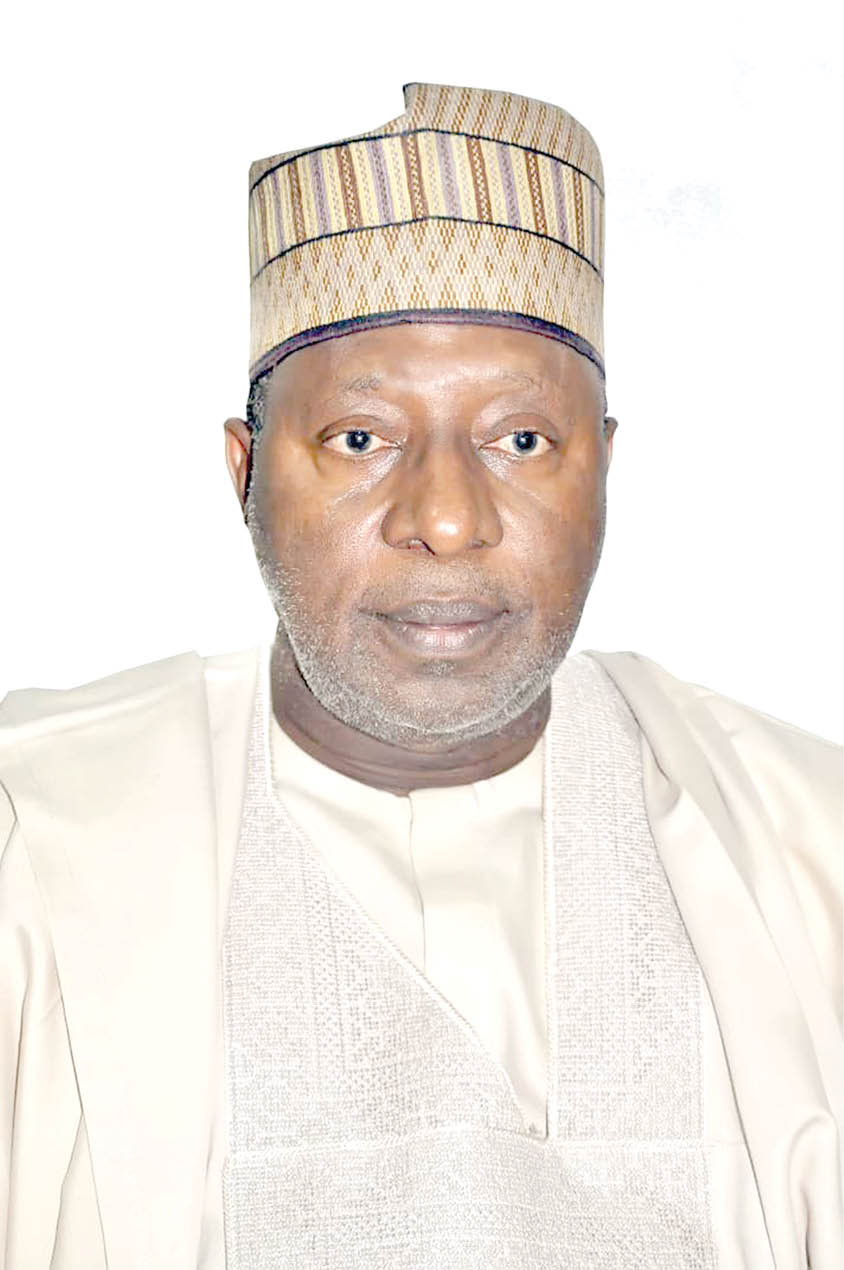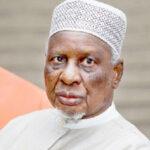Malam Murtala Aliyu is the Secretary General of the Arewa Consultative Forum (ACF), the political and cultural association of leaders in Northern Nigeria. In this interview with Weekend Trust, the Matawallen Gombe and former Minister of State for Power and Steel, shares his thoughts on the pressing issue of unity and why Nigeria has yet to heal from the war.
Why are we still here; 54 years after civil war?
I personally think that something needs to be done to ensure that we look at things from the same perspective as a country, not from the perspective of a northerner, an easterner, a westerner, or south-south person; not even perspective of religion: be it a Muslim, Christian or traditionalist. We should all look at it as a country, because historically, yes, we were put together, but 60 years is enough for us to blend and appreciate the diversity.
You talked about coming together to really see how we can improve this relationship, but a lot of people make reference to the 2014 National Conference. Do you think that moment was another missed opportunity?
In the first place, the 2014 conference was not conceived fairly. Out of the 400 delegates, only 183 were from the north. Also most of the government appointees were not from the north. So you had a compromised setup like that; where it was already tilted and the north felt inadequately representated. Secondly, I personally think that when you want to have a country, you have to leave everything open. I think the first thing we should do as a country is to have a referendum on whether we want to be in one country or another before even discussing issues of restructuring. Then if we all agree that we are going to be in one country, we can then sit down together and consider what we should restructure.
But if somebody is talking about restructuring and at the same time talking about agitation to break away, it won’t work. So, the moment we agree that we are going to be in one country, then we can restructure to fit our tendencies, our complexities, etc. If after the referendum it is clear that it is not going to be a country, which will be unfortunate, then we should be able to respect the decision of the people, because we can’t be talking about restructuring and talking about forming a separate country.
- For unity, Nigeria needs sincere leaders — President, Ohanaeze Ndigbo
- ‘It is sad that despite lives lost during Biafra, Nigeria is still divided’
I had hoped that by now we would be looking at West Africa as one unit. That is going back to micro nationalism. If in 1963-64, the regions were looking unsatisfactory, oppressive; they were looking too large and unmanageable, there were tendencies and cries of oppression by minorities within each region which led to the creation of states. From 1967 to now, if we are still talking about going back to regions then, there is a problem. We must look at what solutions we have and then go back to find out what the issues are. Let me give an example with the parliamentary system we were practicing; suddenly we realised that with the complexities of Nigeria, the parliamentary system may not be the best. Whoever took that decision, it was his judgment at that time. Then we started practicing the federal system. The point here is that all of them might be wrong or right and I am saying not just both of them, all systems can be wrong. America practices presidential system and I know American legislators that come from their locations to Washington and live in their offices, and then go back home after they finish their jobs, not buying SUVs, not building huge estates for legislators.
We have a parliamentary system that can also be expensive, depending on the mindset of the people. I think what is important is to really be sincere to ourselves on what can be done. Do we really want to be a country as a people? And if we don’t want to be a country, then we can discuss it, but I can tell you there’s no portion of Nigeria that will be better than the whole now. All the stories that we would have done better than this are not true. I went to a secondary school in the South-west, what was then Western Region; Odogbolu precisely. I was in Odogbolu when Ogun State was created and the competition then wasn’t about Yorubas and other people. It was about the Ijebus and the Egbas. Same thing when you go to Abeokuta, the Egbas segregate among themselves. In the South-west, Lagosians will tell you they are not part of the South-west.
There must be a diversion of views anywhere there are groups of people, which means that any societal formation will have conflicts, but our own is unmanageable. Our children are jobless. They don’t have hope, they are complaining. In that case, do you think that if you create a zone as a country, you will be able to manage those contradictions? I highly doubt it. Which is why I say why can’t we look at the bigger size and its advantages? There are governors in their states, who after losing elections run to Abuja or somewhere else to live because they can’t live in their states, which means that if that state were a country, they would be in exile. But suppose you have a large country that you can go elsewhere and stay within your own country with little contradictions? So, my take would be that we ought to sit down and not just to learn lessons, but to review the lessons themselves.
I think we need to go back to the civil war and look at all the processes that we went through, look at all the congregations also, and then come back and look at what is happening today and see if we can address it.
Most of the agitations are from the South-east region. Why is that so?
We have to make up our minds about building the same country. Afterwards, we can structure the country according to how we want it to run. I personally think the South-east needs to recalibrate their approach to politics again.
When Jonathan became the president, the secretary to government, top ministerial positions were from South-east. In fact, some people were brought from abroad to take positions. But let me tell you why there is a problem now. For the first time, 2014-2015, the north came together, it never happened before. If you look at the history of the country from the 60s, the north was the only region that had clear opposition in the House. In 1979, when (the National Party of Nigeria) NPN and co were at play, NPN, which was considered a northern party had five states out of the 10, the remaining five states went to opposition, (Great Nigeria Peoples Party) GNPP had two, (Peoples Redemption Party) PRP had two, (Nigeria Peoples Party) NPP had one. I can’t remember the exact figures of (the National Republican Convention) NRC and (the Social Democratic Party) SDP, but it was tending towards 50/50 in favour of NRC in 1992. In 1999, when (the Peoples Democratic Party) PDP came, out of the 19 states in the north, they had 10 (the All Peoples Party) APP had nine which is like 50/50. But by the time it (north) was pushed, when Jonathan came, they got so frightened that they all clustered together and 17 states went one way, which sent a message. As long as we keep frightening the north, it will remain liberal in politics without any sense of disproportion. I can tell you that politically, the north is sophisticated. So don’t frighten the north, approach them and engage them.
Recently, we had an uprising or a mini uprising in Ibadan in the South-west. Is it worrisome that the agitations appear to be spreading?
When the Eastern Region declared Biafra, the Western Region was willing to declare also, but in the further reflections they realised that it was not in their favour to do that. If you are agitating as a basis for negotiation, go ahead. But if you are serious, you are in trouble because attention can come as a basis for negotiation. So my own take is it’s not just the South-east, but people have been suppressing the North, the elders especially, they say don’t do that, the North are senseless people and so on. I believe that referendum should be the first step.
The ruling party that came immediately after the military in 1979, which was just a few years after the end of the civil war, less than a decade after the war, the North opened their arms and made the Igbos the vice president. They forgave Ojukwu, gave him a senate seat to contest. If anything affected the North, it was not immediately after the civil war, but only as a result of everything that was not appreciated, which gave a general feeling that you cannot appease certain people.
How has this feeling affected the relationship between the Igbos and the North?
Distrust started from 1966, almost all those that killed the leaders were people that were close to them. Chukwuma Kaduna Nzeogwu was very close to the Sardauna, but he personally killed him. Emmanuel Ifeajuna was close to Zakariya Maimalari. In fact, when Maimalari saw him, he ran to him and then he (Ifeajuna) shot him. Likewise, Okafor was close to Tafawa Balewa, but he took him from his house and killed him. So what does that say, these are people that you brought into your household, people that you thought you could run to when you were in trouble, those were the people that physically killed them. So, the issue of trust started from then on. But I believe very strongly that if we return to the drawing board and talk to one another, things can be better.

 Join Daily Trust WhatsApp Community For Quick Access To News and Happenings Around You.
Join Daily Trust WhatsApp Community For Quick Access To News and Happenings Around You.

